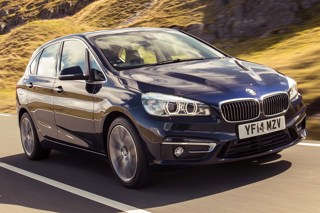Review
This is the car that shocked some and horrified others when it was first seen at the 2001 Frankfurt Motor Show. But time has mellowed the impact of Adrian van Hooydonk’s and Chris Bangle’s uncompromising design.
Worldwide sales of almost 160,000 since launch – an 8% increase on the previous model – make this the most successful 7 to date.
BMW now has a key aim for the revised range: to reaffirm its place as the best driver’s car in its sector. The company admits this brand value has been overshadowed by the car’s styling and its technology.
A second key objective, although primarily an internal aim, is to re-establish the 7’s status as the BMW flagship – and that requires sustained volume objectives for the remaining three-and-a-half years of its life. This means about 2,000 sales a year in the UK – or 20% of the market with the 7-series competing principally with the Jaguar XJ (40% of the UK market) and the Mercedes S-class (25%).
BMW predicts 60% of sales will be private, although a large percentage of these will be individuals buying through their companies.
Following historical patterns, the £48,925 730d will be the UK’s best seller. And, with the introduction of a long wheelbase version in September, this engine variant account for over 60% of all UK sales. And that’s the one on which we concentrated at the launch exercise – with great expectations.
Revisions to interior and exterior styling are subtle. The major changes include a completely redesigned diesel, a new suspension package and a much improved level of standard equipment – all models now have Dynamic Stability Control (DSC) with Dynamic Traction Control (DTC). With 231bhp and 383lb-ft of torque on tap from the 3.0-litre straight-six diesel, progress is purposeful and smooth, though not electrifying thanks to the 7’s 1,900kg curb weight.
The 730d is a refined and complete car, capable of both effortless cruising and satisfying kick-down overtaking. It is only when compared to the likes of the 750Li that the oil-burner feels softer and less responsive.
The extensive changes BMW has made to the 7-series in general, and the 730d in particular, look set to firmly re-establish the series’ place as the ultimate luxury driving machine.

Strengths: Quality, revised engines, brand association
Weaknesses: iDrive still flawed, external styling still divides opinion
Opportunity: To re-establish the 7-series as the world’s ultimate luxury driving machine and claw-back market share from rivals
Threats: Pressure on the luxury segment; punitive company car tax
USP: Conspicuous consumption
Prices: £48,925 - £78,850 (LWB £51,525-£80,975)
Engines: 3.0-litre six-cyl diesel; 3.0-litre six-cyl petrol; 4.0-litre V8 petrol; 5.0-litre V8 petrol; 6.0-litre V12 petrol Transmission 6spd Steptronic auto
Performance: 730d: 0-62mph 7.8sec, top speed 148mph
Efficiency: 730d: 34.5mpg comb; 216g/km CO2
CAP RV (3/30): £19,325 (42%)
Rivals: Jaguar XJ, Mercedes S-class, Audi A8
Factsheet
No information available.














